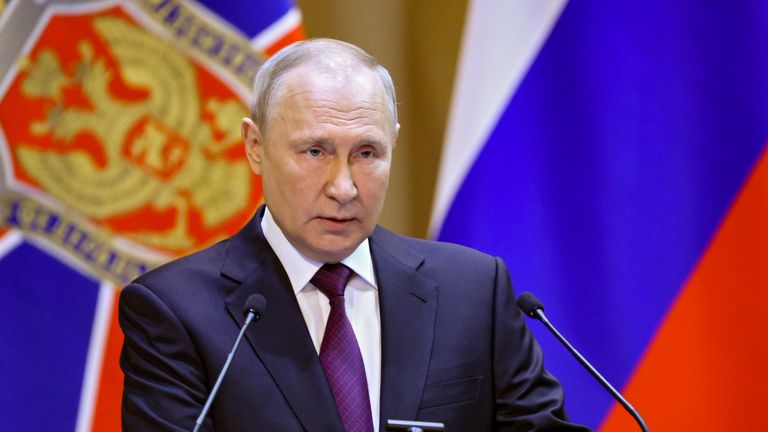Russian President Vladimir Putin recently made significant comments on international matters, confessing the Israel-Gaza conflict and the situation in Karabakh.
In response to the escalating Israel-Gaza conflict, President Putin cautioned Israel against conducting a ground operation in Gaza. He drew a controversial historical parallel, comparing the potential consequences to the Nazi siege of Leningrad during World War II. Putin stressed that such an operation would result in an “absolutely unacceptable” number of civilian casualties. While acknowledging that Israel had faced a severe attack from Hamas militants, he criticized Israel’s response as excessively harsh.
Moreover, Putin noted the calls, even in the United States, for imposing a Gaza blockade similar to the historical siege of Leningrad. He found this parallel unacceptable and highlighted the dire humanitarian situation in Gaza, where more than two million people reside. Putin’s comments were significant, as they not only offered a critical perspective on the Israel-Gaza conflict but also included a historically sensitive reference that could potentially offend Israel.
However, amidst his criticism, Putin acknowledge Israel’s right to defend itself. He also emphasized the urgency of stopping the ongoing bloodshed and called for negotiations to resolve the Israeli-Palestinian conflict. Russia positioned itself as a potential mediator, indicating its readiness to coordinate with all constructively minded partners.
President Putin also addressed the long-standing conflict in Karabakh, emphasizing Russia’s commitment to facilitating a peace treaty between Azerbaijan and Armenia. He mentioned the possibility of organizing negotiations in Moscow to support the achievement of a peace agreement, highlighting Russia’s willingness to play a mediation role.
However, Putin acknowledged the recent developments in Karabakh, which could impact Armenia’s participation in the CIS sports competition scheduled for 2024. The situation in Karabakh remains a complex and delicate issue in the South Caucasus region, and Russia’s involvement in facilitating negotiations demonstrates its interest in regional stability.
In addition to discussing these specific conflicts, Putin commented on the Commonwealth of Independent States (CIS), a regional organization that includes former Soviet republics. He praised the CIS as a “reliable, in-demand, and effective format of cooperation.” However, he acknowledged that some member countries, such as Ukraine, Georgia, and Moldova, had varying levels of participation in the CIS.
Putin criticized Ukraine for not fully engaging with the organization, as it had signed but never ratified the CIS fundamental documents. This reflected ongoing tensions between Russia and Ukraine, stemming from events like Russia’s annexation of Crimea and the conflict in Eastern Ukraine.
Regarding Moldova, Putin expressed concerns that the country’s authorities were moving away from their Moldovan identity and embracing a Romanian identity instead. This comment highlighted the ongoing challenges in Moldova’s political and cultural landscape.

